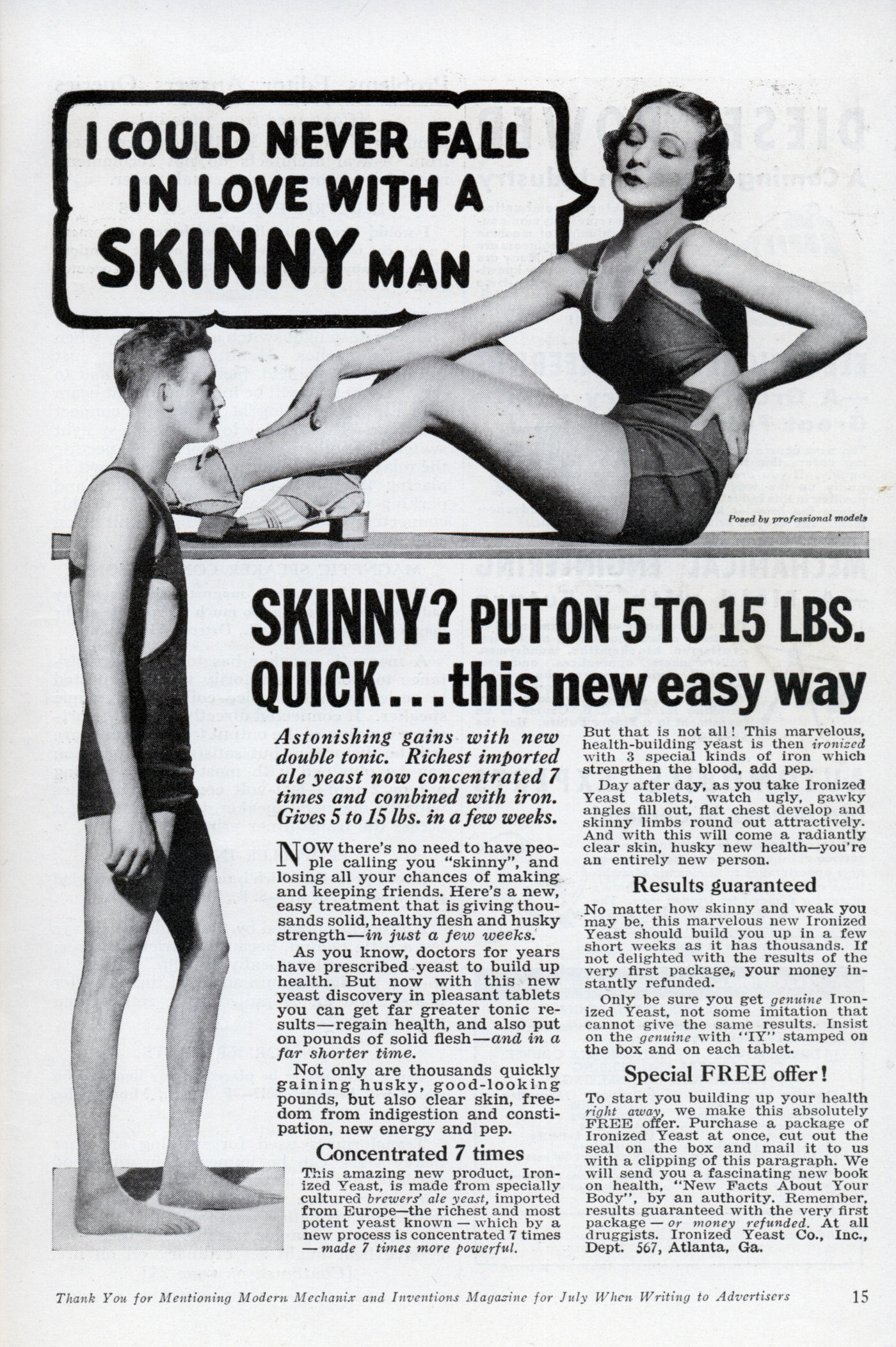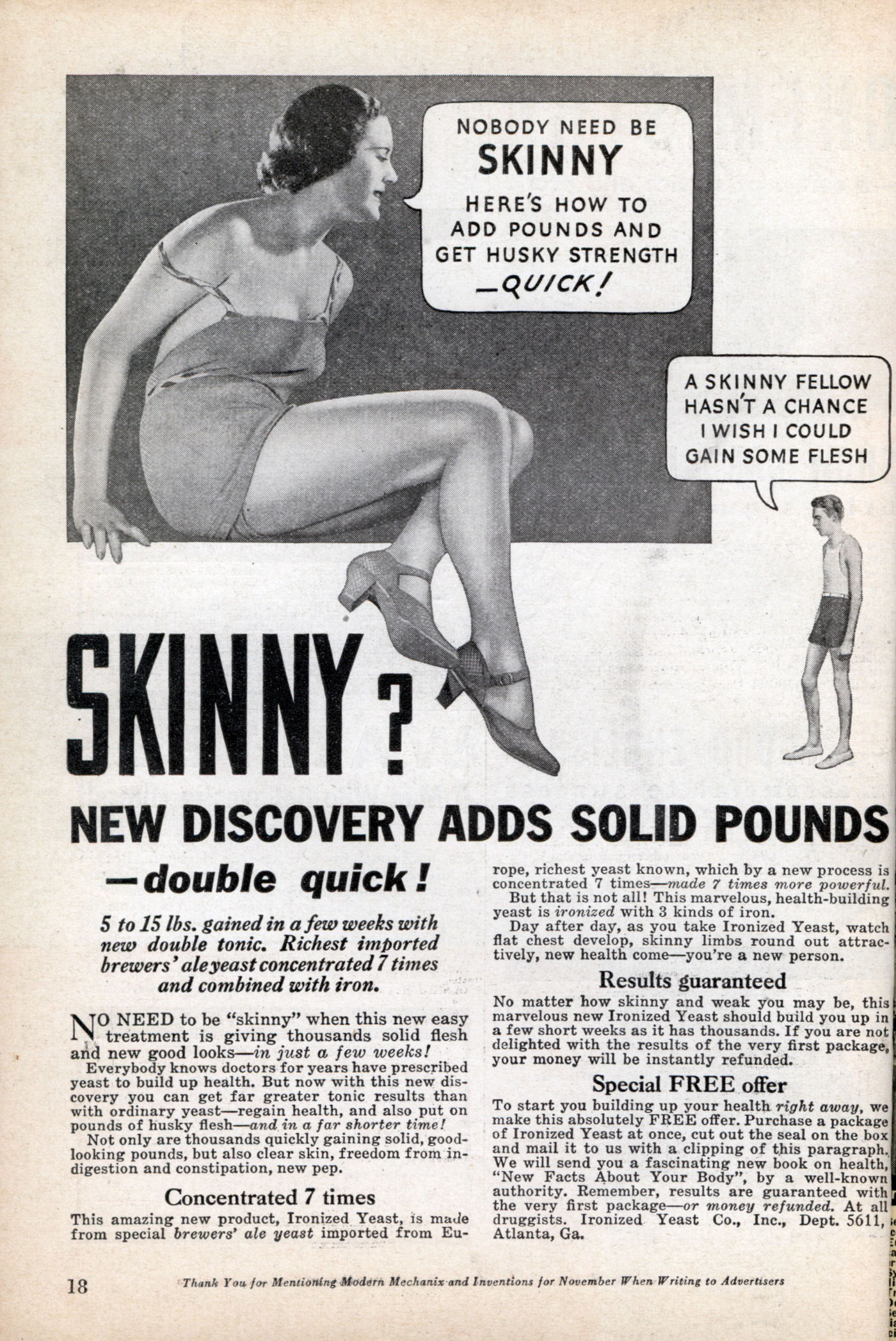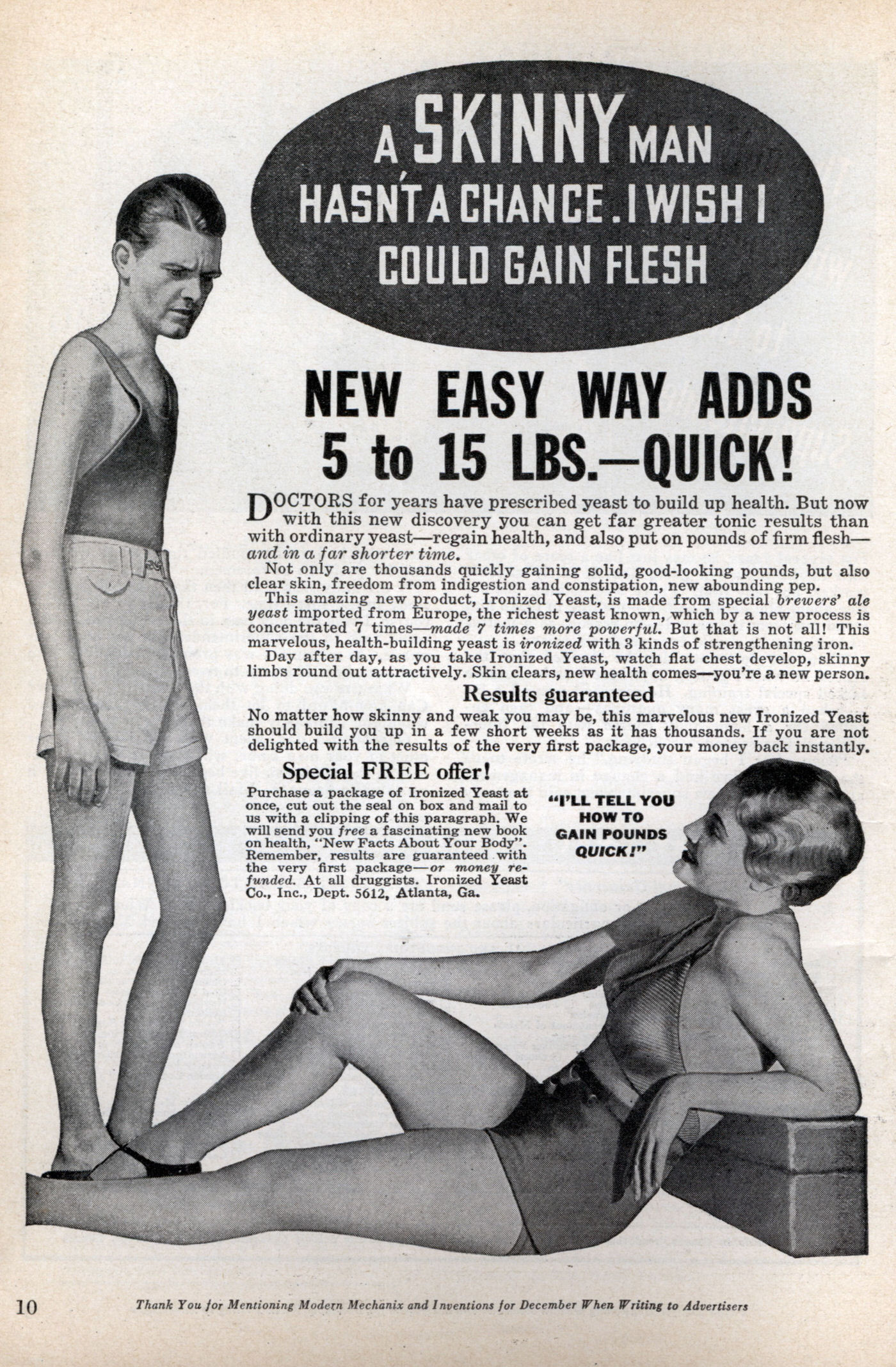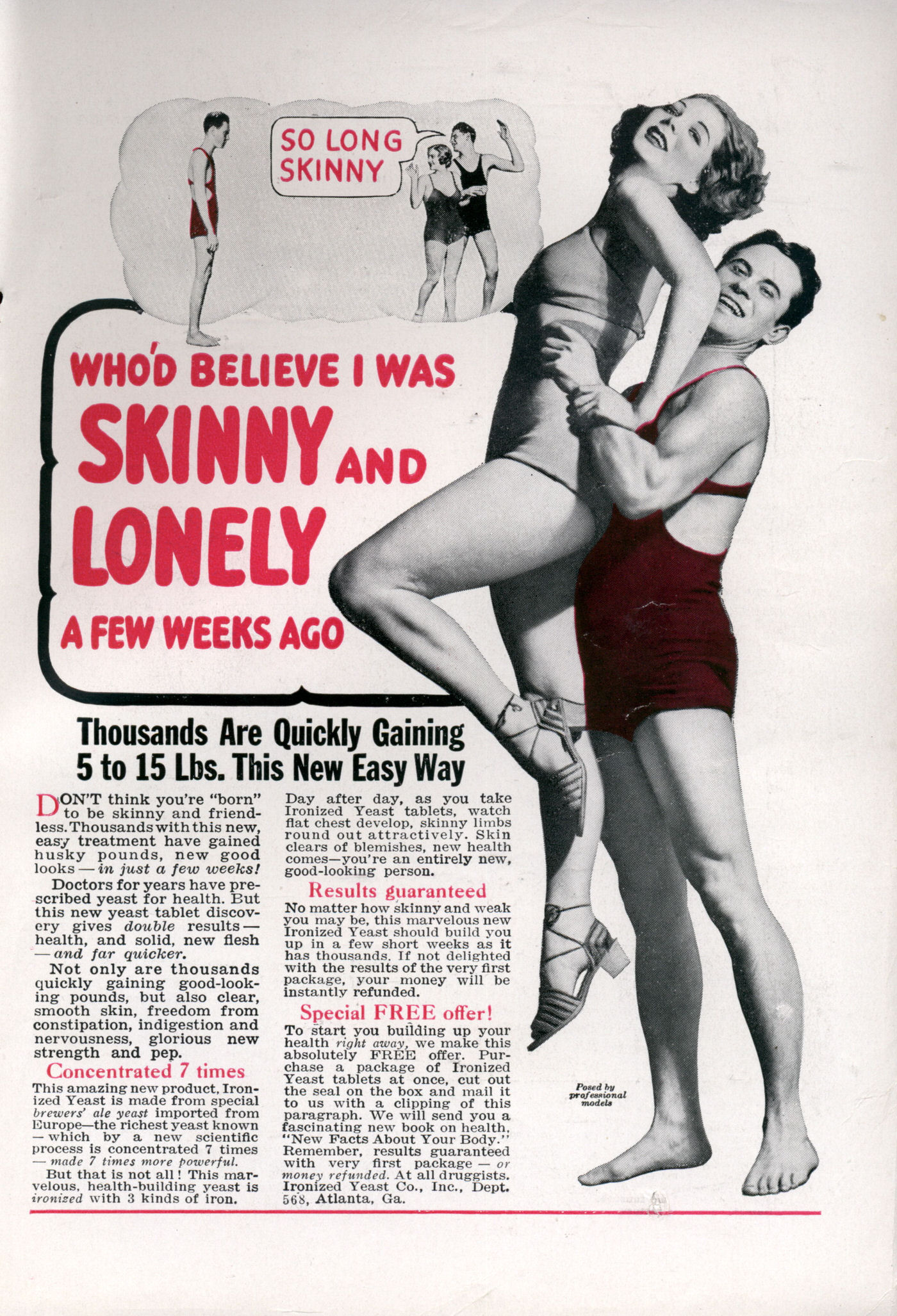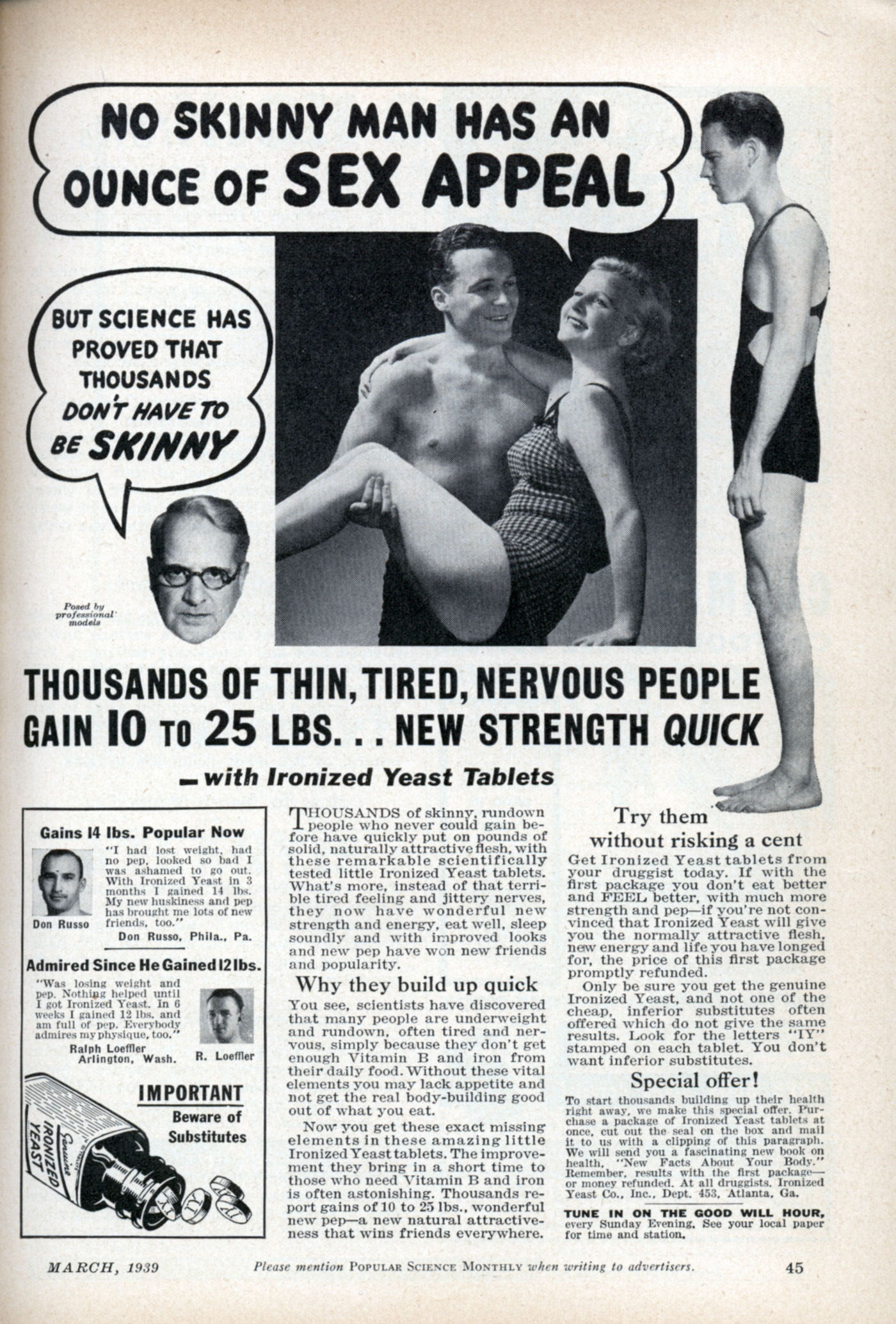“Give me a robust, well-rounded man any day!” – A slogan that might sound odd today, but in the mid-1930s, this was the norm. Imagine living in a time when being skinny was considered undesirable, and advertisements encouraged people, especially men, to gain weight for better social acceptance. Sounds strange, right? Well, let’s take a trip back in time and explore the curious world of vintage weight gain ads from the 1930s.
The 1930s were a unique era marked by the end of the Great Depression, the rise of Hollywood, and a shift in popular culture. Among these changes, society’s views on body image and health also evolved. Unlike today, where advertisements are usually promoting weight loss and slim figures, in the 1930s, they were encouraging people to put on a few extra pounds.
These ads claimed that being skinny was a surefire way to lose friends and stay unnoticed. A lack of flesh on your bones was associated with poor health, low energy, and a lack of attractiveness. Phrases like “I could never fall in love with a skinny man” dominated these ads, implying that a fuller figure was key to attracting a romantic partner.
What was the solution to this ‘skinny problem’? According to the ads, the miracle cure was yeast tablets. It was touted as a revolutionary discovery that could help you gain weight quickly and, therefore, gain popularity and love.
The claim was that yeast tablets could provide double benefits: improved health and a fuller figure. They promised to help individuals gain weight, improve skin clarity, boost energy, and alleviate common digestive issues like indigestion and constipation. All of this could supposedly be achieved in just a few weeks.
Ads like “Don’t be skinny! Gain new good looks!” were plastered everywhere, promising to transform skinny, “friendless” individuals into popular, robust figures. These ads preyed on societal standards and insecurities, suggesting that gaining weight was the key to a happier, more successful life.


